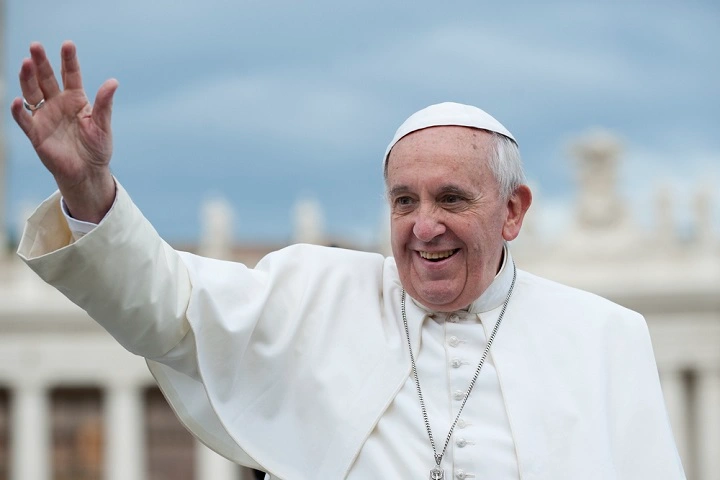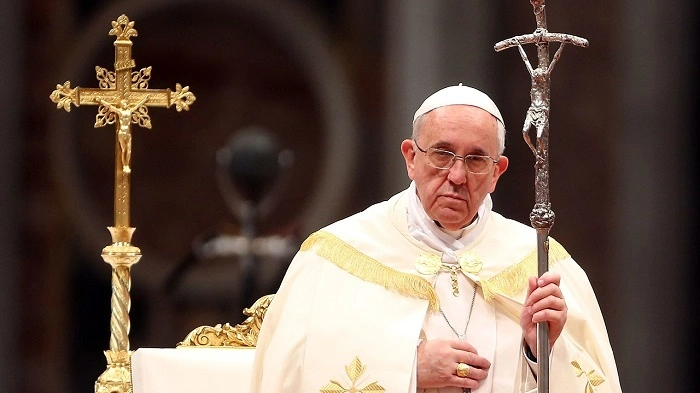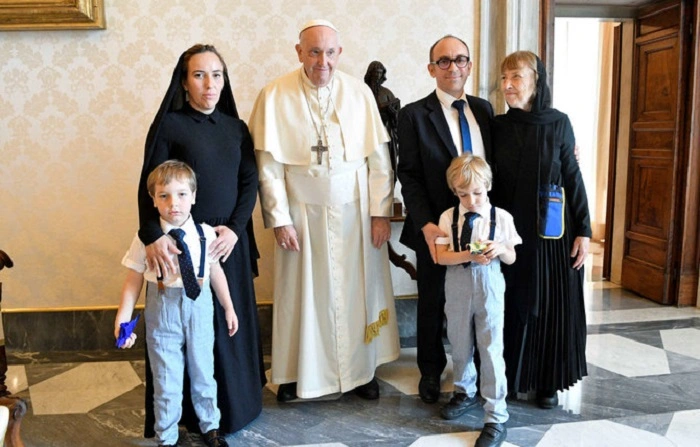
Pope Francis, born Jorge Mario Bergoglio, is the 266th pope of the Roman Catholic Church and one of the most influential spiritual leaders in the world. Unlike business leaders or celebrities, however, the concept of wealth and personal assets is vastly different for the Pope. As the head of the Catholic Church, Pope Francis holds no personal fortune or net worth in the traditional sense. Instead, he oversees the financial resources of the Vatican, a sovereign city-state and the administrative heart of the global Catholic Church.
In this blog, we’ll explore the financial status of Pope Francis, his role as the leader of the Catholic Church, and the Vatican’s wealth and assets.
Does Pope Francis Have a Personal Net Worth?

Unlike celebrities, politicians, or business leaders, Pope Francis does not hold any personal wealth or assets that can be quantified as a traditional net worth. Upon becoming pope, any personal assets he might have had prior to his election would typically be transferred or used in service of the Church. This is in line with the Catholic Church’s teachings on humility, simplicity, and service to others.
The title of pope does not come with personal riches or a salary. Instead, as the head of the Catholic Church, Pope Francis lives at the Vatican, has his expenses covered by the Church, and holds his position as a servant of God, with his mission focused on spiritual leadership rather than personal financial gain.
Why Pope Francis Has No Personal Net Worth
Pope Francis, like his predecessors, lives under the vows of poverty and humility, dedicating his life to service and the welfare of the Catholic Church. He has consistently advocated for living simply, often emphasizing the importance of aiding the poor and marginalized. Even before becoming pope in 2013, Francis lived a modest lifestyle as a cardinal in Buenos Aires, Argentina, shunning luxury and materialism.
As pope, he continues to lead a humble life, refusing many of the traditional papal luxuries, such as living in the lavish Papal Apartments. Instead, Pope Francis resides in the more modest guesthouse at the Vatican known as the Domus Sanctae Marthae, reflecting his commitment to a simple and austere lifestyle. This further reinforces the idea that personal wealth and riches are not a focus for the Pope.
The Vatican’s Wealth: Managing the Assets of the Catholic Church
While Pope Francis himself holds no personal wealth, the Vatican as an institution manages significant financial resources. The Vatican oversees an enormous global network of religious, educational, and charitable institutions, along with assets that include priceless art, real estate, and investments. As the leader of the Church, Pope Francis has a moral and administrative responsibility over these assets.
The Vatican’s Wealth and Holdings
| Asset Type | Estimated Value/Contribution to Vatican’s Wealth |
| Real Estate Holdings | Estimated in the billions |
| The Vatican Bank (IOR) | $5.6 billion in managed assets (as of 2023) |
| Vatican Museums and Art | Priceless artifacts, artworks, and historical treasures |
| Global Donations and Offerings | Hundreds of millions annually |
| Investments and Financial Holdings | Billions in assets and funds |
Real Estate Holdings
The Vatican holds a substantial amount of real estate, both within Vatican City and across the globe. Properties include churches, cathedrals, monasteries, and historical buildings. Some of these are considered priceless due to their cultural and historical significance. However, the Church primarily sees these properties as serving the mission of faith and spiritual service, not as assets for personal wealth accumulation.
Also Read: Franklin Graham Net Worth
The Vatican Bank (IOR)
The Institute for the Works of Religion (IOR), commonly known as the Vatican Bank, plays a significant role in the financial management of the Church’s global assets. The bank manages billions of dollars in assets and provides financial services to the Catholic Church’s various entities. However, it operates with strict guidelines to support religious missions and charitable work rather than generate profit for individuals.
As of 2023, the IOR managed around $5.6 billion in assets. These funds are directed toward supporting the Vatican’s charitable work, the global Catholic Church, and the maintenance of the Vatican’s institutions.
Vatican Museums and Priceless Art
The Vatican Museums house one of the world’s most extensive and valuable collections of art and historical artifacts, including the works of Michelangelo, Raphael, and Leonardo da Vinci. The value of these priceless pieces cannot be quantified in traditional financial terms. These collections serve as both religious treasures and cultural heritage, with proceeds from the museums and tours supporting the Vatican’s operational needs and charitable missions.
Global Donations and Offerings
The Catholic Church receives annual donations and offerings from its global followers. These contributions, known as Peter’s Pence, help support the Pope’s charitable efforts and aid initiatives around the world. Each year, these offerings amount to hundreds of millions of dollars, which are allocated for global relief efforts, charitable missions, and the Church’s day-to-day functions.
Investments and Financial Holdings
In addition to its real estate and donations, the Vatican holds financial investments. These funds are managed conservatively and are directed toward the Church’s mission, infrastructure, and social initiatives. While the exact value of these investments is not publicly disclosed, they are estimated to be in the billions of dollars.
Pope Francis’ Influence on Vatican Finances
Since becoming pope in 2013, Pope Francis has made efforts to reform the Vatican’s financial structure. One of his major focuses has been to improve transparency and accountability within the Vatican Bank and other financial institutions associated with the Church. His goal has been to ensure that the Church’s wealth is used responsibly and ethically, particularly in supporting the poor and vulnerable.
Papal Reforms and Financial Oversight
Pope Francis established the Secretariat for the Economy in 2014 to oversee the Vatican’s financial affairs and bring greater clarity to its operations. He has pushed for audits, increased transparency, and measures to prevent financial misconduct. His reforms have been met with both praise and resistance, but they demonstrate his commitment to ensuring that the Church’s wealth is aligned with its spiritual mission.
Philanthropy and Charity Under Pope Francis
Pope Francis has continuously emphasized the importance of charity, humility, and helping the marginalized. His papacy has been marked by a strong commitment to social justice, and the Vatican’s charitable outreach has expanded under his leadership.
Programs funded by the Vatican include aid to refugees, disaster relief, medical care for the poor, and educational support in impoverished regions. As head of the Church, Pope Francis uses the Vatican’s resources to lead and inspire charitable actions that reflect his belief in a “Church for the poor.”
What’s Next for Pope Francis?
As the leader of the Roman Catholic Church, Pope Francis continues to focus on spiritual leadership, global outreach, and reforms within the Vatican. While his personal financial worth remains virtually non-existent, his influence over one of the world’s most powerful religious institutions is profound. As he continues his mission of humility, charity, and reform, the wealth of the Vatican will remain centered around service, not personal gain.
In conclusion, Pope Francis’ net worth cannot be quantified in personal financial terms, as his role as Pope is centered on spiritual and charitable leadership, not wealth accumulation. The Vatican, as an institution, oversees significant assets and global resources, but these are used in the service of faith, charity, and the Catholic mission. Pope Francis continues to lead by example, championing humility, reform, and social justice.




